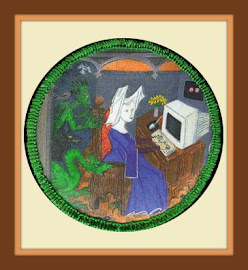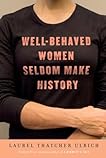
The non-fiction choices were mostly busts. The Shipler book was overwhelmingly large, and the intro didn’t draw me in. Combine that with my sister in town and the non-negotiable inter-library loan due date, and I didn’t give it much of a chance at all. Sorry Maryanne!
I tried a book on race and institutional churches in the US written by sociologists—they suggest that multiracial congregations are an answer to race problems in the country--but found it uninteresting.
And then, I started Mauss’s treatise on changing racial conceptions in Mormonism. It was dense, and I didn’t have the time to commit to it, so it also went back to the library when it came due. I'll have to try that one again later.
The other non-fiction that I tried went down a little bit better. There was the recently published memoir of a girl not much older than me that grew up in a rich California suburb, surrounded by white neighbors. And I read a lot of Du Bois’s sociological classic The Souls of Black Folks.
The fiction that I read:
Toni Morrison’s Beloved. An amazing story about the long lasting effects of slavery. Morrison has a complicated writing style in this book, and the story slowly unravels from the present to the past and then back again until all the pieces are put together. Sethe was born into slavery, and then as a young woman, escaped. But, she is plagued by the memories of life on Sweet Farm, as well as the ghost of her dead daughter. I wish I would have known that there was a supernatural/fantastical aspect to the story. I kept waiting for the mystery of the identity of Beloved to resolve in some logical way, but it never did. I plan to read more Morrison.
Lalita Tademy’s Cane River. The back story behind this one is most fascinating. Tademy was working as a high powered executive in the Bay area when she became obsessed with her family history. This book is the fictionalized account of 4 generations of women, starting with Elizabeth, who were born into slavery on the Cane River in Creole Louisiana. In the introduction, Tademy describes the way that she felt these four women, and in particular her great-grandmother Philomene, urging her on in her research and writing and in the desire that she felt to tell their stories. I would like to read the memoir version of this. Several of these women had white fathers, to the effect of "the bleaching of the color-line" in the words of one of the family matriarchs. Although in many cases, these men provided land and money for their families, they were legally prevented from giving land to their children or marrying their children's mother. In the story of Tademy's grandmother Emily, this leads to a particularly tragic end.
Alice Walker’s The Color Purple. Like Beloved, a Pulitzer winner. I didn't like this one nearly as much, but enjoyed the voice of Celie. The book in written in the form of letters, so Celie's voice is the only one the reader gets to hear for the first half of the book. Then, we get some letters from Nettie, Celie's sister, to provide a contrasting voice. This is a story about the redeeming power of love, friendship, and writing. My favorite line: "I'm poor, I'm black, I may be ugly... but I'm here."
and A Raisin in the Sun, the play by Lorraine Hansberry. I saw a production of this on Friday night, and was so taken with it that I went and got the script so that I could read it. This is the story of a three-generation family in Chicago in the 1950's. The grandmother Lina is the head of the household and the play begins with her about to receive $10,000 insurance money from the death of her husband. The title is taken from Langston Hughes' poem, which wonders about what happens to deferred dreams. In the play, various family member struggle to fulfill their dreams, often to the detriment of each other. And in particular, the drama concerns the battle for the soul and identity of Lina's son, Walter Jr. From a NYTimes review of a 25th anniversary (1983) production:She (Hansberry) posed all her concerns in a work that portrayed a black family with a greater realism and complexity than had ever been previously seen on an American stage. A writer of unlimited compassion, Miss Hansberry believed that all people must be measured, as she put it, by both their "hills and valleys."
This is a story about redemption and love.
A couple of other general thoughts:
Empathy. If I had to theorize, I would have said that those people who have been excluded or oppressed by others would be more likely to have empathy for others that are excluded or oppressed. But, that is not necessarily the case, at least here. People who have been dominated and oppressed want to also dominate and exclude. In Baszile's memoir, she recounts a story from her childhood. Once she and her sister became accepted in their neighborhood, they used their social power to exclude another child. Du Bois's essays are full of the way that black men have been emasculated. The language is male-centric. Although he wants black men to be the social and legal equals of white men, he doesn't think that black women should be the equals of black men. (This was also shown in Ulrich's book: abolitionists did not automatically jump on the bandwagon for women's rights.)
Hair. In Baszile's book, the measures black women go to to straighten their hair are incredible. Hair comes up in Raisin too. The character from Africa calls treated hair "mutilated" and the lye treatment Baszile describes does seem like a kind of torture.
Sunday, March 22, 2009
African American History Month
February is long gone, but I have just finished my African American reading project. I read Their Eyes Were Watching God in January and that inspired me to do some more reading.
Hierarchy. In these works, white, rich men in these works hold the most power. Black poor women the least. If a black woman has a lighter shade of skin, she is higher up on the ladder than a woman with darker skin. Lighter black women shouldn't marry darker black men. What is it in human nature that makes us so often order everyone?
Labels:
Off the Stacks
Subscribe to:
Post Comments (Atom)












4 comments:
Interesting! I had noticed from GoodReads that you were picking up a lot of books about race in America, but I had no idea it was part of a personal reading project. Very cool idea, I'm impressed.
Sorry Shipler didn't go down well. One much shorter easier read, which you may already have read, is The Color of Water: A Black Man's Tribute to his White Mother-- I just re-read it and enjoyed it, and that was sparked by reading Obama's Dreams from My Father, which I thoroughly enjoyed too (his noting of how on his African trip he enjoyed being somewhere where black was just how everone was really struck me-- as obvious as it is too)
Color of Water has been on my shelf for a while. I'll have to pick it up.
I also really liked Color of Water. I've only read one book by Toni Morrison--Song of Solomon. I read Color Purple about the same time and I often confuse those two.
I love your themed reading! I'm going to try that.
Post a Comment